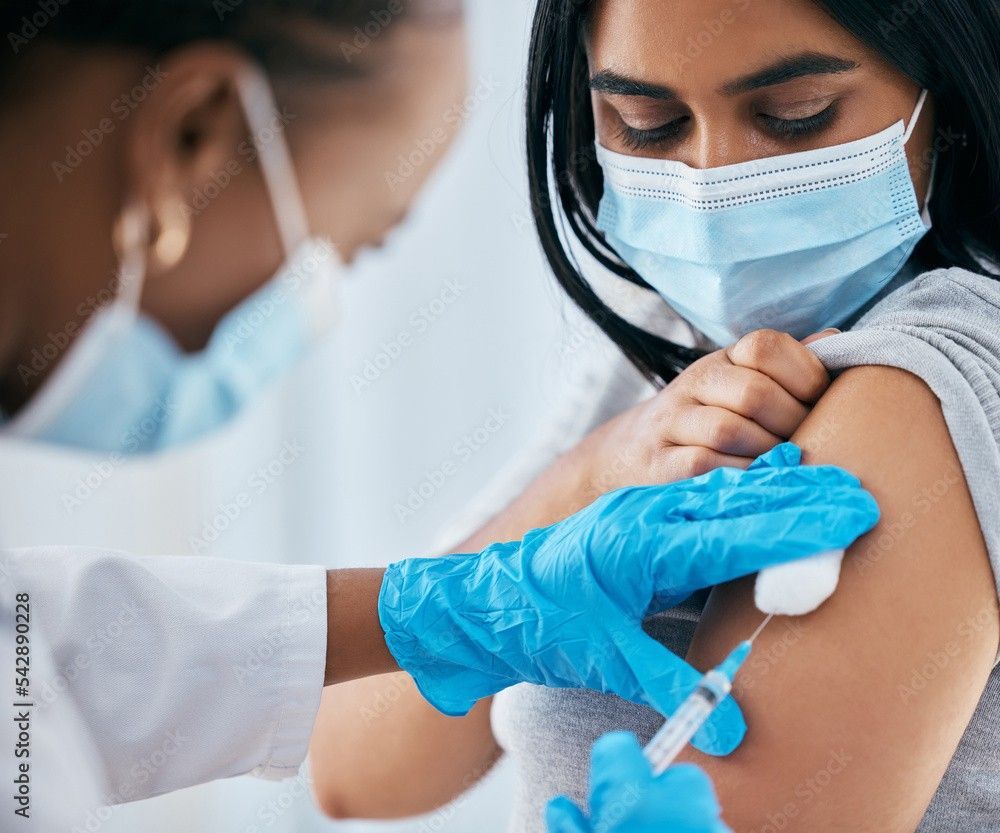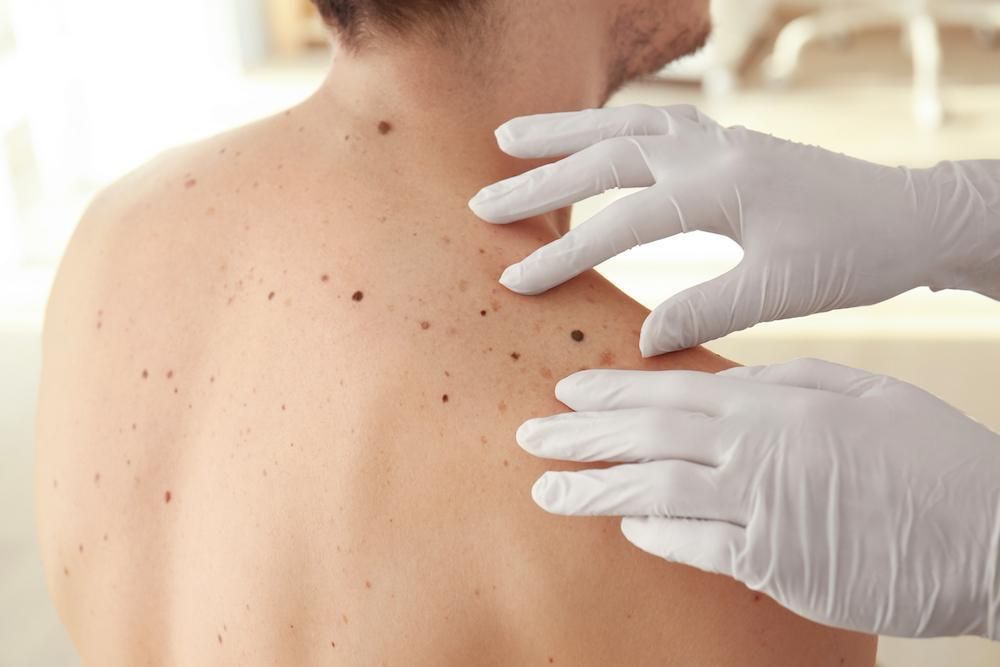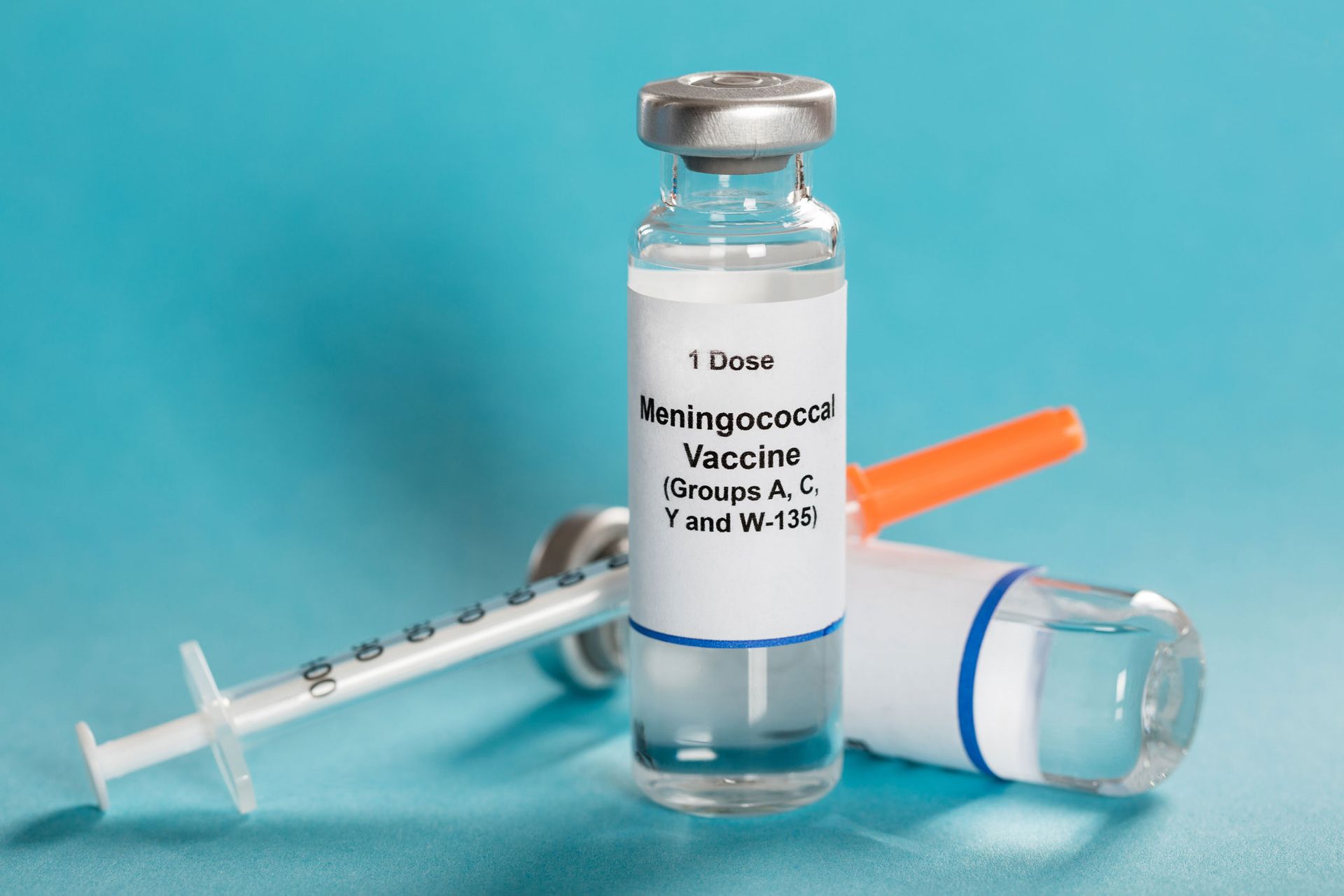Essential Travel Vaccines for Southeast Asia: A Comprehensive Guide for Kiwi Travellers
Protect Your Health Before You Go: Everything New Zealand Travellers Need to Know About Vaccinations for Thailand, Vietnam, Indonesia, and Beyond

Planning an adventure through Southeast Asia? From the bustling streets of Bangkok to the tranquil beaches of Bali, this vibrant region offers unforgettable experiences. However, protecting your health should be at the top of your travel checklist. This comprehensive guide covers the essential vaccines recommended for travel to Southeast Asia, helping you stay safe whilst exploring this remarkable part of the world.
Understanding Travel Vaccine Requirements
The Centers for Disease Control and Prevention (CDC) provides detailed guidance for travellers heading to Southeast Asia, recommending several vaccines based on your specific itinerary, duration of stay, and planned activities. Whilst some vaccines are recommended for all travellers, others depend on whether you'll be spending time in rural areas, your length of stay, and your planned activities.[1][2]
It's important to note that New Zealand does not currently have vaccines available for chikungunya or dengue fever, despite these being significant health concerns in the region. However, other preventive measures and vaccines can substantially reduce your risk of illness whilst travelling.[3][4]
Core Vaccines for All Southeast Asia Travellers
Hepatitis A is one of the most common vaccine-preventable diseases affecting travellers to Southeast Asia. This viral infection affects the liver and spreads through contaminated food and water, making it a significant risk even for short-term visitors staying in quality accommodation.[1][2]
Mortality and Morbidity: Whilst most people recover from hepatitis A, it can cause severe illness requiring hospitalisation. The infection causes fatigue, fever, nausea, and jaundice (yellowing of the skin and eyes).[5]
Vaccine Schedule and Protection:
· First dose provides protection within 2 weeks[6][7]
· Second dose given 6-12 months later ensures long-term immunity[5][6]
· After completion of the two-dose series, protection lasts at least 17 years, possibly up to 30-40 years[8][9]
· A single dose provides protection for at least one year[6]
Time to Effectiveness: Protection begins approximately 2-4 weeks after the first dose.[2][6]
Available at 1 Health: We stock hepatitis A vaccine and can administer it on-site, ensuring you're protected well before your departure.
Typhoid fever remains a significant health threat in Southeast Asia, with the region accounting for a substantial proportion of the global disease burden. This bacterial infection spreads through contaminated food and water and can cause severe illness.[10][11]
Mortality and Morbidity: Typhoid fever causes approximately 216,500 deaths annually worldwide, with the majority occurring in Asia. The mortality rate varies by region, with case fatality rates in Asia averaging around 5.7%. Without treatment, complications can include intestinal perforation, which carries a mortality rate of approximately 15.6%. Children and young adults are particularly vulnerable, with the highest incidence rates occurring in these age groups.[12][11][13][10]
Vaccine Options and Schedules:
Two vaccine types are available:
1. Injectable vaccine (Typhim Vi):
Single dose administered at least 2 weeks before travel[7][2]
Protection lasts approximately 2-3 years[2]
Booster recommended every 2-3 years if ongoing risk
2. Oral vaccine (Vivotif):
Four capsules taken over 7 days (one capsule every second day)[2]
Complete course at least 10 days before departure[2]
Protection lasts approximately 5 years
Booster recommended every 5 years if ongoing risk
Time to Effectiveness: Injectable vaccine provides protection 2 weeks after administration; oral vaccine requires completion of all four doses at least 10 days before travel.[2]
Available at 1 Health: Both injectable and oral typhoid vaccines are available, and we can help you choose the most suitable option for your travel plans.
Japanese encephalitis (JE) is a mosquito-borne viral infection and the most common vaccine-preventable cause of encephalitis in Asia. Whilst overall risk to short-term travellers is low, certain activities and travel patterns significantly increase exposure risk.[14][1]
Mortality and Morbidity: JE is a serious disease with devastating consequences. The mortality rate ranges from 20-30% among those who develop symptoms. Of those who survive, 30-50% experience permanent neurological complications, including cognitive impairment, behavioural changes, and physical disabilities. Recent estimates suggest the case fatality rate has declined from approximately 26% in the 1960s-1970s to around 14% in recent years, though it remains a significant threat.[15][16][17][14]
Who Needs This Vaccine:
· Travellers spending more than one month in rural areas[18][14]
· Those visiting during transmission season (varies by country but generally associated with rainy seasons)
· Travellers to endemic areas regardless of duration if engaging in high-risk activities (camping, cycling, outdoor activities)[1][2]
· Laboratory workers who might be exposed to the virus[14]
Vaccine Schedule and Protection:
· Two doses given on days 0 and 28[2][14]
· Accelerated schedule available: days 0 and 7 for last-minute travellers[19]
· Ideally complete the series at least 1 week before travel[2]
· Duration of protection: Current evidence suggests protection lasts at least 2-3 years after the primary series[20][15]
· Booster doses may be considered for those with ongoing exposure risk
Time to Effectiveness: Protection develops approximately 1 week after completing the vaccine series (approximately 7-10 days after the second dose).[19][2]
Available at 1 Health: Japanese encephalitis vaccine is stocked on-site and can be administered according to your travel timeline.
Rabies is one of the most feared travel-related diseases, and for good reason. Once symptoms appear, it is almost universally fatal.
Mortality and Morbidity: Rabies has the highest case fatality rate of any infectious disease, approaching 100%. Globally, rabies causes approximately 59,000 deaths annually, with 95% of cases occurring in Africa and Asia. Asia alone accounts for approximately 60% of global deaths. India has the highest burden, with an estimated 20,000 deaths per year, representing 35% of the global total. Children under 15 years account for 40% of all rabies deaths.[21][22][23]
The majority of human rabies cases (99%) result from dog bites. Without post-exposure treatment, the probability of developing rabies following a bite from a rabid animal varies by location: head bites carry a 55% risk, upper extremity 22%, trunk 9%, and lower limb 12%.[22][23][24]
Who Should Consider Pre-Exposure Vaccination:
· Travellers spending extended periods in rural areas
· Those likely to have contact with animals (veterinarians, wildlife researchers, adventure travellers)
· Children (who are more likely to approach animals and may not report bites)
· Travellers to areas where post-exposure treatment may be difficult to access
· Cyclists, runners, and those engaging in outdoor activities where animal encounters are possible
Vaccine Schedule and Protection:
The Australasian College of Tropical Medicine recommends the following for most healthy travellers:
Pre-Exposure Prophylaxis (PrEP):
· Two-dose schedule: Most cost-effective option for travellers
Doses given on days 0 and 7
Requires booster before next trip to rabies-endemic areas
Not suitable for immunocompromised individuals or those over 50 years (who should receive 3-dose schedule)
· Three-dose schedule: For extended stays or higher risk
Doses given on days 0, 7, and 21-28
Provides longer-lasting protection
Recommended for immunocompromised travellers
Duration of Protection:
· Two-dose schedule: Effective protection for current trip; booster recommended before subsequent travel to endemic areas (recommended at least 12 months after first dose)
· Three-dose schedule: Protection lasts at least 3 years; ongoing exposure may warrant periodic boosters[19]
Time to Effectiveness: Protection develops approximately 7 days after completing the vaccine series.
Post-Exposure Requirements: If bitten or scratched by a potentially rabid animal:
· Travellers who received pre-exposure vaccination require 2 additional doses on days 0 and 3
· Travellers without pre-exposure vaccination require rabies immunoglobulin (RIG) plus 4-5 doses of vaccine
· Important: RIG is not readily available in many parts of Southeast Asia. Pre-exposure vaccination eliminates the need for RIG, which can be extremely difficult to source overseas.
Available at 1 Health: Rabies vaccine is available, and we can discuss the most appropriate schedule based on your travel plans, activities, and medical history. For complete guidance, refer to the Australasian College of Tropical Medicine rabies guidelines.
Additional Recommended Vaccines
Hepatitis B is transmitted through contact with infected blood or body fluids, making it a concern for travellers who might require medical care, engage in certain activities, or have longer stays.
Mortality and Morbidity: Hepatitis B can cause both acute and chronic liver disease. Chronic infection can lead to cirrhosis and liver cancer. The global burden is significant, though many infections can be prevented through vaccination.[25]
Vaccine Schedule and Protection:
· Standard schedule: 3 doses at 0, 1, and 6 months[26][25]
· Accelerated schedule for last-minute travellers: 0, 7, and 21 days, plus a booster at 12 months[19][26]
· Duration of protection: After completing the primary course, protection is believed to last at least 20-30 years, possibly lifelong for most people[26]
· Booster doses are generally not required for immunocompetent individuals[25][26]
Time to Effectiveness: Protection develops 1-2 months after completing the primary series. The accelerated schedule provides more rapid protection (65-98% protected within 1-5 weeks).[26]
Available at 1 Health: Hepatitis B vaccine (Engerix-B) is stocked on-site, and we can provide both standard and accelerated schedules based on your departure date.
Whilst cholera risk for typical tourists is low, certain travel patterns and humanitarian work increase exposure risk. Cholera is endemic in many parts of Southeast Asia.[27][28][29]
Mortality and Morbidity: Cholera causes severe, watery diarrhoea that can lead to rapid dehydration and death if untreated. Without treatment, severe cholera can kill within hours. With prompt rehydration therapy, mortality drops to less than 1%.[30]
Vaccine Schedule and Protection:
· Dukoral® (available for travellers):
Two doses for adults (three doses for children 2-5 years)[31][32]
Doses separated by 1-6 weeks[32][31]
Must be given at least 1 week before travel[31]
Duration of protection: 2 years in those 6 years and older; 6 months in children 2-5 years[32]
Booster every 2 years if ongoing risk (every 6 months for young children)[32]
· Alternative vaccines (Shanchol™/Euvichol®):
Two doses separated by at least 2 weeks[31]
Duration of protection: 3 years[31]
Single dose provides short-term protection[31]
Time to Effectiveness: Protection begins approximately 1 week after completing the vaccine course.[31]
Note: Cholera vaccine also provides short-term protection (approximately 3 months) against enterotoxigenic E. coli (ETEC), a common cause of travellers' diarrhoea.[33][32]
Available at 1 Health: Oral cholera vaccine can be provided for high-risk travellers. We'll assess your specific itinerary to determine if this vaccine is recommended for you.
Routine Vaccines with Travel Considerations
COVID-19 vaccination remains important for international travellers, reducing the risk of severe illness and complications.
Vaccination Recommendations:
All international travellers should be up to date with COVID-19 vaccinations before travel[19]
"Up to date" typically means completing a primary series plus recommended boosters
Protection wanes over time, with effectiveness declining several months after vaccination[34][35]
Available at 1 Health: COVID-19 vaccines are available for eligible individuals. We can advise on whether a booster is appropriate before your trip.
The flu circulates year-round in tropical regions like Southeast Asia, making vaccination important regardless of the time of year you travel.[36]
Vaccine Schedule and Protection:
Time to effectiveness: Takes up to 2 weeks to provide full protection, though some protection may develop within 4-6 days[36]
Duration of protection: Effectiveness begins to wane approximately 41 days after vaccination, declining by approximately 9% every 28 days[38][39]
Annual vaccination recommended due to both waning immunity and changes in circulating virus strains[38]
Available at 1 Health: Annual influenza vaccine is available and strongly recommended for all travellers, regardless of destination.
Tetanus, Diphtheria, and Pertussis (Tdap)
Tetanus is a risk anywhere in the world through contaminated wounds. Ensuring you're up to date protects against this potentially fatal disease.
Vaccine Schedule and Protection:
Primary series: 3 doses in infancy plus boosters in childhood[40]
Adult boosters recommended at ages 45 and 65 years in New Zealand[40]
For travel: Booster recommended if more than 10 years since last dose[40]
Duration of protection: After completing primary series and boosters, protection lasts at least 20-30 years in most adults[40]
Booster every 10 years recommended for optimal protection, especially after tetanus-prone injuries[40]
Time to Effectiveness: If previously vaccinated, protection develops rapidly (within days) after a booster dose due to immune memory.[40]
Available at 1 Health: Tdap vaccine is available, and we can review your vaccination history to determine if a booster is needed before travel.
Measles, Mumps, and Rubella (MMR)
Measles outbreaks occur periodically in Southeast Asia, and the disease is highly contagious.
Mortality and Morbidity: Measles is far more serious than many people realise. Complications occur in approximately 10% of cases and include ear infections, pneumonia, and diarrhoea. Encephalitis (brain inflammation) occurs in 1 in 1,000 cases, with 15% of those affected dying and 25-35% suffering permanent neurological damage. The overall case fatality rate is 1-3 per 1,000 cases in developed countries but can be as high as 28% in areas with malnutrition and poor healthcare. Measles also suppresses the immune system for approximately 2 years after infection, increasing vulnerability to other diseases.[41][42]
Vaccine Recommendations:
· Two doses provide long-lasting (likely lifelong) protection[42]
· If born after 1969 and haven't received 2 doses, consider vaccination before travel[2]
· Particularly important for younger travellers and those who may not be fully vaccinated
Available at 1 Health: MMR vaccine is available for those requiring catch-up vaccination before travel.
Important Vaccines NOT Available in New Zealand
Unfortunately, New Zealand does not currently have a dengue vaccine available, despite dengue being a significant health threat in Southeast Asia. Dengue is transmitted by Aedes mosquitoes (which bite during the day) and can cause severe, sometimes fatal illness.
Prevention: Focus on mosquito bite avoidance:
· Use insect repellent containing DEET, picaridin, or IR3535
· Wear long-sleeved shirts and long trousers
· Stay in air-conditioned or well-screened accommodation
· Be especially vigilant during early morning and late afternoon when Aedes mosquitoes are most active
Similarly, New Zealand does not stock chikungunya vaccine. This mosquito-borne viral disease causes fever and severe joint pain that can persist for months.
Prevention: Same mosquito avoidance strategies as for dengue.

Planning Your Vaccination Timeline
Ideally, schedule your travel health consultation 6-8 weeks before departure. This allows sufficient time to:[43][44]
·Complete multi-dose vaccine series
·Allow vaccines to become effective
·Address any adverse reactions before travel
However, last-minute travellers can still receive important protection:
·Single-dose vaccines (typhoid injection, hepatitis A first dose) can be given closer to departure
· Accelerated schedules available for some vaccines (Japanese encephalitis, hepatitis B)
·Even partial vaccination provides some protection
1 Health Advantage: We stock all recommended travel vaccines on-site, eliminating delays in sourcing vaccines and ensuring you can complete your immunisations efficiently.
Costs and Practical Considerations
Travel vaccines are not funded under New Zealand's National Immunisation Schedule, meaning you'll pay privately for these immunisations. However, investing in prevention is far more cost-effective than dealing with serious illness overseas, which may involve:
· Emergency medical treatment
· Evacuation to facilities with appropriate care
· Extended hospitalisation
· Trip disruption and additional accommodation costs
· Long-term health consequences
Travel insurance is strongly recommended, though many policies have exclusions for vaccine-preventable diseases if you haven't taken recommended precautions.
Not every traveller needs every vaccine. Your personalised recommendations depend on:
· Destination specifics: Rural vs urban, endemic disease patterns
· Duration of stay: Short trips vs extended travel or expatriate living
· Activities planned: Adventure travel, wildlife contact, medical work
· Accommodation type: Luxury resorts vs backpacking
· Your health status: Age, immune function, pregnancy, chronic conditions
· Previous vaccination history
At 1 Health, we conduct thorough travel health assessments, reviewing your complete itinerary and medical history to provide tailored recommendations. Our doctors stay current with international travel medicine guidelines, including CDC recommendations, to ensure you receive evidence-based advice.
What to Bring to Your Appointment
To make the most of your travel health consultation, bring:
· Detailed travel itinerary (countries, cities, rural areas)
· Planned activities (trekking, diving, cycling, wildlife encounters)
· Accommodation types
· Your vaccination records (if available)
· List of current medications
· Any relevant medical conditions
Beyond Vaccination: Additional Travel Health Measures
Vaccines are just one component of travel health. We'll also provide guidance on:
· Malaria prevention: Medication recommendations if travelling to endemic areas
· Travellers' diarrhoea management: Preventive strategies and treatment options
· Insect bite prevention: Repellents, protective clothing, bed nets
· Food and water safety
· Altitude sickness prevention (if relevant)
· Travel health kit essentials
Schedule Your Consultation at 1 Health
1 Health is Christchurch's comprehensive travel health clinic, offering:
· All recommended travel vaccines in stock on-site
· Experienced clinicians with travel medicine expertise
· Personalised risk assessment and advice
· Convenient location and appointment times
· Competitive pricing
· Ongoing support for your travel health needs
Don't leave your health to chance. Book your pre-travel consultation today and embark on your Southeast Asian adventure with confidence and peace of mind.
Important Disclaimer
This information is intended for general educational purposes and should not replace professional medical advice. Individual vaccine recommendations depend on multiple factors including your specific itinerary, medical history, current health status, and personal risk factors. Always consult with a qualified healthcare provider for personalised travel health advice before your trip. The information presented reflects current evidence and guidelines but is subject to change as new research emerges. 1 Health doctors will provide up-to-date, tailored recommendations during your consultation.
· Southeast Asia travel warrants several important vaccines, including hepatitis A, typhoid, and Japanese encephalitis
· Rabies pre-exposure vaccination significantly simplifies treatment if exposed and may be life-saving in areas where immunoglobulin is unavailable
· Routine vaccines (COVID-19, influenza, tetanus) should be current before travel
· Dengue and chikungunya vaccines are not available in New Zealand; mosquito bite prevention is essential
· Begin planning 6-8 weeks before travel, though last-minute consultations can still provide important protection
· 1 Health stocks all recommended vaccines on-site for your convenience
Book your travel health consultation at 1 Health today and travel with confidence.
⁂
1. https://www.passporthealthusa.com/destination-advice/east-and-southeast-asia/
2. https://wwwnc.cdc.gov/travel/page/vaccine-guide
3. https://www.nature.com/articles/s41591-025-03703-w
4. http://medrxiv.org/lookup/doi/10.1101/2024.10.24.24315872
5. https://edinburghtravelclinic.co.uk/how-long-does-the-vaccine-for-hepatitis-a-last/
6. https://www.medsafe.govt.nz/consumers/cmi/h/Havrix.pdf
7. https://www.nomadtravel.co.uk/travel-clinic/travel-vaccinations-for/asia/south-east-asia
8. https://pmc.ncbi.nlm.nih.gov/articles/PMC4648811/
9. https://www.immune.org.nz/vaccine/havrix
10. https://pmc.ncbi.nlm.nih.gov/articles/PMC4584874/
11. https://pmc.ncbi.nlm.nih.gov/articles/PMC4584874
12. http://medrxiv.org/lookup/doi/10.1101/2024.06.28.24309663
14. http://www.cdc.gov/mmwr/volumes/68/rr/rr6802a1.htm?s_cid=rr6802a1_w
15. https://www.tandfonline.com/doi/full/10.1080/21645515.2021.1969852
16. https://journals.plos.org/plosntds/article?id=10.1371%2Fjournal.pntd.0010361
17. https://www.who.int/news-room/fact-sheets/detail/japanese-encephalitis
18. https://www.scti.co.nz/travel-advice/travel-vaccinations
19. https://www.cdc.gov/yellow-book/hcp/preparing-international-travelers/last-minute-travelers.html
20. https://pmc.ncbi.nlm.nih.gov/articles/PMC8982926/
21. https://en.wikipedia.org/wiki/Rabies
22. https://www.ncbi.nlm.nih.gov/books/NBK448076/
23. https://www.woah.org/en/disease/rabies/
24. https://www.who.int/teams/control-of-neglected-tropical-diseases/rabies/epidemiology-and-burden
25. https://healthify.nz/medicines-a-z/h/hepatitis-b-vaccine
26. https://www.medsafe.govt.nz/profs/datasheet/e/Engerix-Binj.pdf
27. https://www.mdpi.com/2076-393X/8/4/606
28. https://pmc.ncbi.nlm.nih.gov/articles/PMC7711912/
29. https://www.mdpi.com/2076-393X/8/4/606/pdf
30. https://pmc.ncbi.nlm.nih.gov/articles/PMC5396246/
31. https://www.who.int/teams/immunization-vaccines-and-biologicals/diseases/cholera
33. https://journals.lww.com/10.4103/0974-777X.77297
34. https://www.cdc.gov/mmwr/volumes/71/wr/pdfs/mm7107e2-H.pdf
35. https://pmc.ncbi.nlm.nih.gov/articles/PMC10231940/
36. https://www.onsitehealth.co.nz/wp-content/uploads/2025/02/FluVac-Q-and-As-25-v1.pdf
37. https://www.immune.org.nz/vaccine/influenza-vaccine
38. https://academic.oup.com/jid/article/217/5/731/4694421
39. https://historyofvaccines.org/blog/timing-your-flu-shot-science-behind-when-get-vaccinated/
41. https://en.wikipedia.org/wiki/Measles
43. https://pmc.ncbi.nlm.nih.gov/articles/PMC7310923/
44. https://pmc.ncbi.nlm.nih.gov/articles/PMC7152348/
45. https://www.health.harvard.edu/blog/measles-is-making-a-comeback-can-we-stop-it-202503063091
46. https://www.immune.org.nz/diseases/tetanus
48. https://immunisationhandbook.health.gov.au/contents/vaccine-preventable-diseases/cholera
49. https://www.immune.org.nz/diseases/measles
50. https://healthify.nz/medicines-a-z/t/tetanus-vaccine
51. https://www.frontiersin.org/articles/10.3389/fpubh.2024.1258188/full
52. https://linkinghub.elsevier.com/retrieve/pii/S0264410X24006996
53. https://annali-igiene.it/articoli/2024/3/07_Guerriero.pdf
54. https://linkinghub.elsevier.com/retrieve/pii/S0264410X25009533
55. https://linkinghub.elsevier.com/retrieve/pii/S0264410X24007527
56. https://trialsjournal.biomedcentral.com/articles/10.1186/s13063-024-08456-4
57. https://www.mdpi.com/2076-393X/12/10/1161
59. https://linkinghub.elsevier.com/retrieve/pii/S0264410X23002165
60. https://link.springer.com/10.1007/s41669-025-00559-1
61. https://pmc.ncbi.nlm.nih.gov/articles/PMC10883331/
62. https://pmc.ncbi.nlm.nih.gov/articles/PMC7487078/
63. https://pmc.ncbi.nlm.nih.gov/articles/PMC8354806/
64. https://pmc.ncbi.nlm.nih.gov/articles/PMC7906856/
65. https://pmc.ncbi.nlm.nih.gov/articles/PMC8247263/
66. https://www.ica.gov.sg/enter-transit-depart/entering-singapore/yellow-fever-vaccination-certificate
68. https://info.health.nz/immunisations/vaccines-aotearoa/covid-19-vaccines
70. https://www.immune.org.nz/immunisation/programmes/covid-19
71. https://travelclinic.co.nz/vaccinations/
72. https://www.semanticscholar.org/paper/fc35e70db4873f2dfbe7ecb818891845c9f1744b
73. https://www.semanticscholar.org/paper/3bd9ef0700bf328ff7c62162057727ab45b7fe35
75. https://academic.oup.com/jtm/article-lookup/doi/10.1111/jtm.12169
76. https://www.degruyter.com/document/doi/10.1515/BC.2008.062/html
77. http://www.scielo.br/scielo.php?script=sci_arttext&pid=S0037-86822018000200125&lng=en&tlng=en
78. https://doi.apa.org/doi/10.1037/e546842006-001
79. https://academic.oup.com/cid/article-lookup/doi/10.1086/587894
80. https://www.semanticscholar.org/paper/93df21a82b46789cc536a5ceca5b04fc8f0dd758
81. https://pmc.ncbi.nlm.nih.gov/articles/PMC11426078/
82. https://pmc.ncbi.nlm.nih.gov/articles/PMC11737654/
83. https://pmc.ncbi.nlm.nih.gov/articles/PMC11737652/
84. https://jogh.org/2024/jogh-14-03016
85. https://pmc.ncbi.nlm.nih.gov/articles/PMC10940960/
86. https://developers.google.com/search/docs/fundamentals/creating-helpful-content
87. https://authenticdigital.nz/blog/google-seo-guidelines
89. https://firstpage.nz/learning-centre/seo/googles-eat-guide/
90. https://brandnewcopy.com/content-google-e-e-a-t-guidelines/
91. https://pubmed.ncbi.nlm.nih.gov/25819538/
92. https://www.blackpepper.co.nz/blog/e-e-a-t-in-seo-what-is-it-and-why-is-it-important
93. https://www.nzie.ac.nz/blog-basic-guide-to-search-engine-optimisation-seo/
94. https://www.searchenginejournal.com/google-e-e-a-t-how-to-demonstrate-first-hand-experience/474446/
95. https://wwwnc.cdc.gov/travel/destinations/list
96. https://e-journal.unair.ac.id/IJTID/article/view/42305
97. https://aeirc-edu.com/ojs14/index.php/ijehsr/article/view/671
98. https://jhpn.biomedcentral.com/articles/10.1186/s41043-024-00656-7
99. https://journals.lww.com/10.1097/INF.0000000000004614
100. https://ijphs.iaescore.com/index.php/IJPHS/article/view/23158
102. https://journal-academia.com/Ojs/index.php/bimajst/article/view/705
103. https://www.jidc.org/index.php/journal/article/view/17135
105. https://pmc.ncbi.nlm.nih.gov/articles/PMC7705875/
106. https://pmc.ncbi.nlm.nih.gov/articles/PMC9210262/
107. https://pmc.ncbi.nlm.nih.gov/articles/PMC9949843/
108. https://pmc.ncbi.nlm.nih.gov/articles/PMC2798017/
109. https://pmc.ncbi.nlm.nih.gov/articles/PMC2647431/
111. https://pmc.ncbi.nlm.nih.gov/articles/PMC11513656/
112.https://academic.oup.com/jtm/article/28/8/taab150/6383558
114.https://www.sciencedirect.com/science/article/abs/pii/S1576988725001177
115. https://www.immune.org.nz/vaccine/engerix-b
117. https://www.semanticscholar.org/paper/07e27f064d46060dfea3c6f80406011fd91edaeb
118. https://www.tandfonline.com/doi/full/10.4161/hv.29199
119.https://academic.oup.com/jtm/article-lookup/doi/10.1111/jtm.12237
120. https://academic.oup.com/jid/article-lookup/doi/10.1093/infdis/114.5.468
121.https://www.tandfonline.com/doi/full/10.1080/14760584.2022.2092472
122. https://linkinghub.elsevier.com/retrieve/pii/S277236822200155X
123. https://pmc.ncbi.nlm.nih.gov/articles/PMC6188567/
124. https://pmc.ncbi.nlm.nih.gov/articles/PMC3147357/
125. https://pmc.ncbi.nlm.nih.gov/articles/PMC9486793/
126. https://pmc.ncbi.nlm.nih.gov/articles/PMC3196468/













